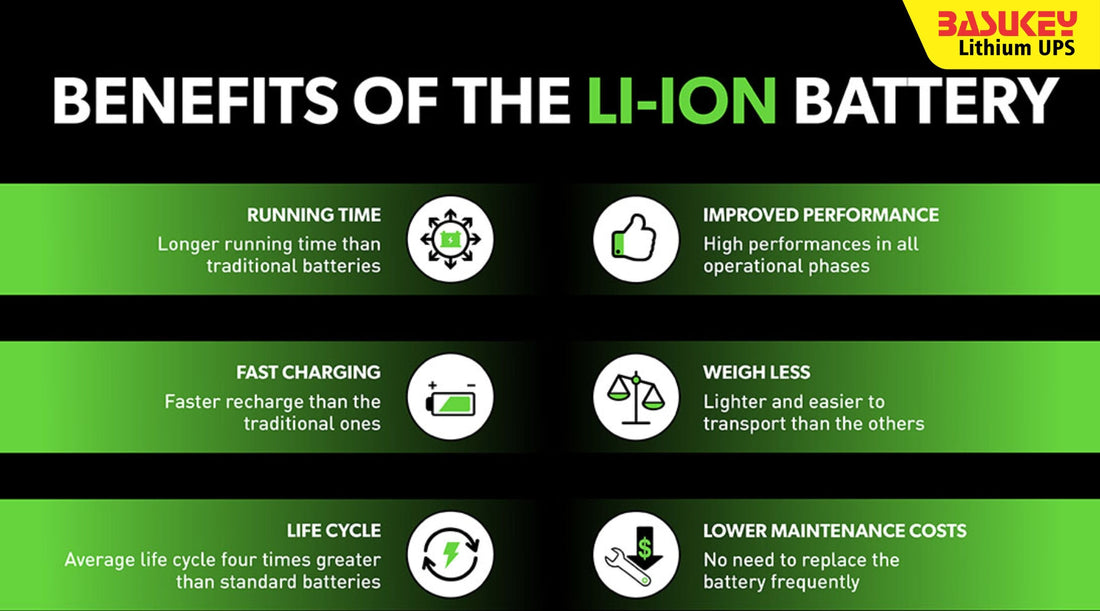
From Downtime to Uptime: The Lithium Battery Advantage in UPS
Share
When it comes to ensuring continuous power supply and preventing downtime, businesses rely heavily on Uninterruptible Power Supplies (UPS). These devices act as a safety net, providing backup power in case of outages or fluctuations in the main power source. One crucial component of a UPS system is the battery, and the type of battery used can make a significant difference in its performance. In recent years, lithium batteries have emerged as a game-changer in the UPS industry.
What makes lithium batteries stand out?
Lithium batteries offer several advantages over traditional lead-acid batteries commonly used in UPS systems. One of the key benefits is their superior energy density, which allows lithium batteries to store more energy in a smaller and lighter package. This compact design not only saves valuable space but also makes installation and maintenance easier.
How do lithium batteries enhance uptime?
With their high energy density, lithium batteries can provide longer backup times, ensuring that critical systems remain operational during power outages. In addition, lithium batteries have a longer lifespan compared to lead-acid batteries, reducing the frequency of battery replacements and maintenance tasks. This increased reliability translates to higher uptime and lower risk of disruptions to business operations.
Are there efficiency gains with lithium batteries?
Yes, lithium batteries are known for their high efficiency levels, which means they can deliver more power while consuming less energy. This efficiency not only reduces operating costs but also minimizes heat generation, leading to a cooler and more stable operating environment for the UPS system. As a result, businesses can achieve better performance and longevity from their UPS infrastructure.
What about environmental impact?
From an environmental standpoint, lithium batteries are a more sustainable choice compared to lead-acid batteries. They are recyclable and have a lower carbon footprint, making them a greener option for businesses looking to reduce their environmental impact. By choosing lithium batteries for their UPS systems, companies can align with their sustainability goals and contribute to a cleaner future.
In conclusion, the shift towards lithium batteries in UPS systems represents a significant advancement in power backup technology. With their superior energy density, longer lifespan, efficiency gains, and environmental benefits, lithium batteries offer a compelling solution for businesses seeking to maximize uptime and reliability. By investing in lithium battery-powered UPS systems, organizations can safeguard their operations against power disruptions and position themselves for long-term success.
